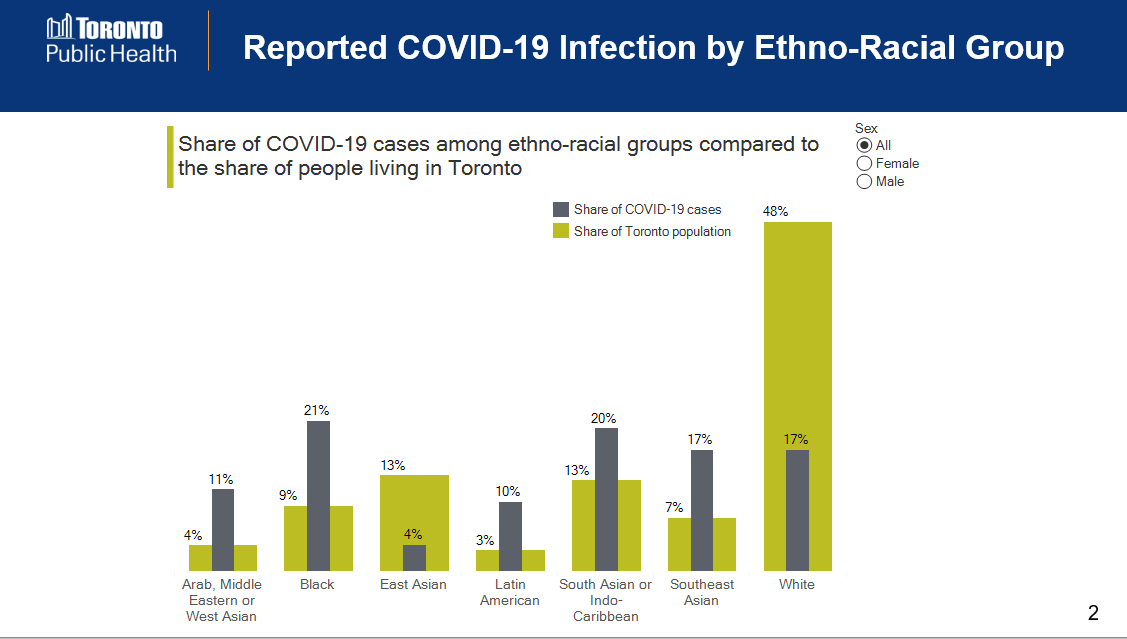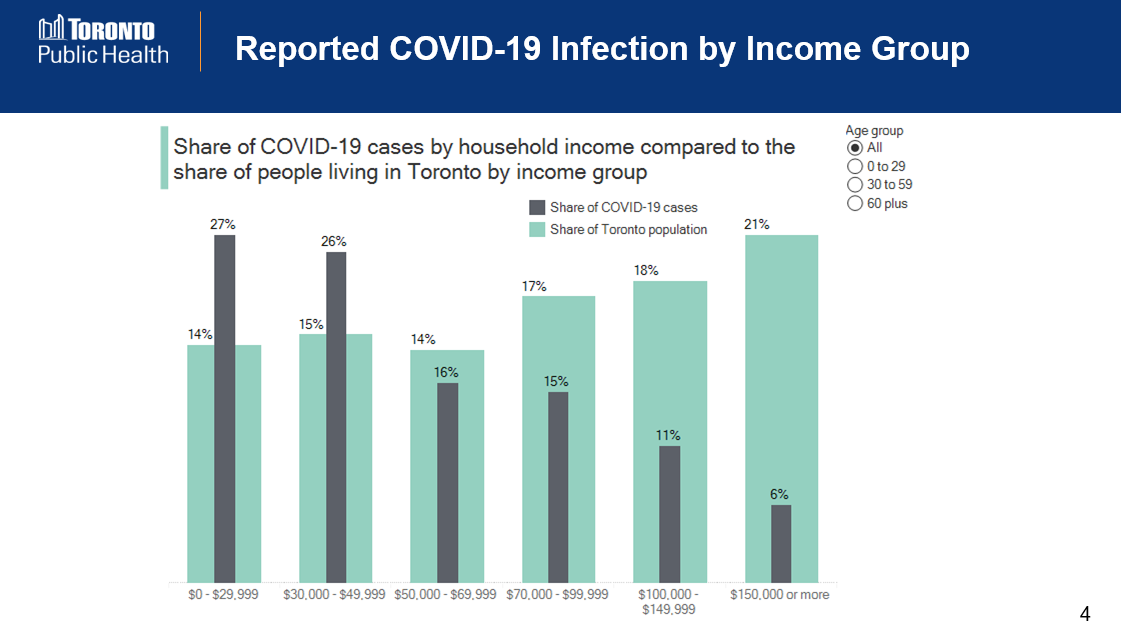Today I'm at City Hall for Dr. de Villa's presentation on individual-level COVID-19 data. This includes trends on income, ethno-racial identity, and housing size for COVID-19 cases in Toronto. Follow along at:
TPH data shows 83% of people with COVID-19 identified as racialized, compared to 52% of Torontonians. Over-represented groups include Black people; South Asian or Indo-Caribbean people; Southeast Asian people; Arab, Middle Eastern, or West Asian people; and Latin American people.
COVID-19 cases are also linked to income. 51% of cases live in low-income households (compared to 30% of the general population). This disproportionate impact of COVID-19 on low-income and racialized residents is deeply disturbing.
At the same time, 27% of COVID-19 cases were among individuals who live in households with five or more people, which may be overcrowded and provide limited space for people who test positive to self-isolate without transmitting the virus to family members.
To put it plainly: COVID-19 is preying on the inequalities in our city. The data clearly shows that people who face systemic barriers are at far greater risk of contracting COVID-19, whether those barriers are poverty, racism, unequal access to services, or all of the above.
This data is a roadmap for prevention. It will inform our recommendations on testing options, affirms the need for voluntary self-isolation facilities, and guides our education and outreach efforts going forward.
But that's not where our work ends. This data clearly shows that we need long-term policy changes, from all 3 levels of government, to fundamentally address poverty, housing stability, and structural racism. That's the only way to truly defeat this pandemic.

 Read on Twitter
Read on Twitter



